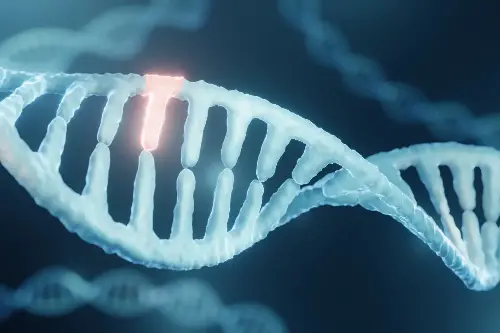
Have you ever imagined yourself as one of the superheroes in comic books, endowed with impressive abilities that defy human comprehension? Although the idea of having special powers is mostly in the realm of films and literature, one part of it is closer to reality than we realize: you could be a mutant. Curious, isn't it? But before you think about laser beams coming out of your eyes or flying through the sky, let's explore what it really means to be a mutant.
Genetics is a fascinating and complex field that studies genes, DNA and their variations. When we talk about mutations, we're talking about changes in the genetic material. These mutations can occur spontaneously or be induced by external factors, such as radiation or certain chemical substances. Many of these changes are harmless and don't cause any noticeable impact. However, some can influence our characteristics, behavior and health in subtle or sometimes significant ways.
Most of the time, the mutations we inherit from our parents are the reason we have particular characteristics, such as hair color, height and even certain predispositions to medical conditions. For example, the ability to digest lactose in adults, something that many consider normal, began as a genetic mutation thousands of years ago. Most people in the world were originally lactose intolerant after childhood. However, a mutation led to the persistence of the lactase enzyme, allowing some individuals to continue digesting milk into adulthood.

Other mutations may seem more intriguing. An interesting example is the mutation known as “delta 32”, an alteration in a gene that offers resistance to the HIV virus, which causes AIDS. People with two copies of this mutated gene are almost immune to HIV infection. Such genetic resistance, although rare, is a powerful example of how our biological characteristics can adapt and evolve in response to environmental threats.
There are also mutations that affect characteristics that we perceive as unique traits. Consider the condition of synesthesia, where a person can “see” sounds or “smell” colors. This fascinating condition, caused by alterations in the brain, can add an extraordinary sensory dimension to everyday experiences, offering an augmented reality of perception.
On the other hand, there are mutations that are invisible but extremely impactful. Some of them are related to surprising physical abilities, such as resistance to certain diseases or the ability to live at high altitudes. A mutation in Tibetan peoples, for example, allows them to live healthily in areas where oxygen levels are low. This fascinating genetic adaptation has occurred over thousands of years, demonstrating the incredible capacity of the human body to evolve in response to extreme environments.

While some mutations can confer advantages, others can bring challenges. Genetic diseases such as cystic fibrosis or hemophilia are caused by specific mutations that affect health in significant ways. Understanding these mutations has led to medical advances, including treatments that can improve and prolong the lives of affected individuals. Genetics research continues to look for ways to correct or mitigate these effects, which highlights the importance of studying mutations for the advancement of medicine.
The field of genetics is constantly progressing. With the advent of advanced gene editing technologies, such as CRISPR, the potential for manipulating genetic mutations is becoming more realistic. CRISPR allows scientists to precisely “edit” genes by removing, adding or altering specific sections of DNA. This could potentially correct disease-causing mutations before their effects manifest. However, while this technology promises to advance medical treatments, it also raises ethical questions about how and to what extent we should intervene in our genetics.
In this incredible and complex universe of mutations, most people probably have mutations that go unnoticed in their daily lives. In fact, each of us carries around 100 to 200 genetic mutations that differentiate us from our parents. The genetic diversity resulting from these mutations is what makes us unique, and this variety is fundamental to the evolution and survival of our species.

The next time you hear the word “mutant”, you might think of things other than comic book superpowers. The wonderful diversity of genetic mutations shows that, in a sense, we are all a bit mutant. These variations in our DNA are a testament to the adaptability and resilience of life, always evolving to adapt to our ever-changing environment.
So, by considering the complexity of our DNA and the countless ways in which it shapes who we are, we can appreciate the incredible genetic heritage we carry. Your personal mutation may not give you the ability to fly, but perhaps it is providing you with unique capabilities or resilience that, in sometimes unexpected ways, contribute to the incredible mosaic that is human life. The journey of genetic discovery continues, and each one of us is a precious page in this constantly evolving story.
